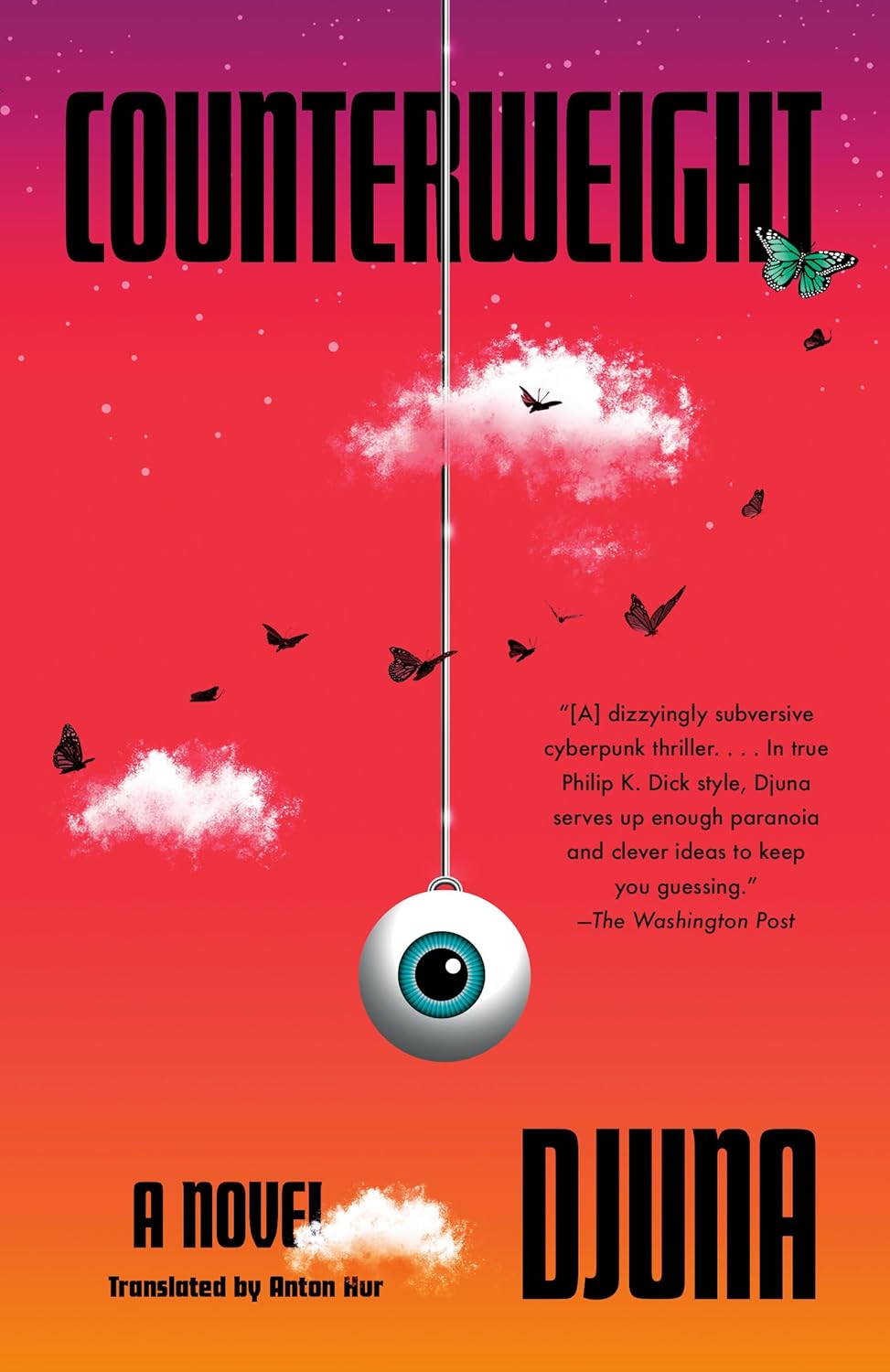“An efficient, fast-paced cyberpunk story . . . The novel’s speculations about human agency resonate in the current moment, when American tech C.E.O.s oscillate between issuing sonorous warnings about the existential risks of the A.I. systems they’re developing and breathless hype about brain-computer interfaces. The book imagines the imminent emergence of companies run by artificial intelligence—companies as intelligence, a fusion of technology and economic logic that will definitively outrun humanity.” —Hari Kunzru, The New York Times Book Review
“[A] dizzyingly subversive cyberpunk thriller . . . In true Philip K. Dick style, Djuna serves up enough paranoia and clever ideas to keep you guessing.” —Charlie Jane Anders, The Washington Post
“A sort of anti-colonial eco-noir set in a rapacious Korean corporation—which is to say, the global economy . . . The novel excels at descriptions of how capital swallows and spits up the natural world . . . Though superficially otherworldly, the villains who populate Counterweight feel familiar. LK could be Amazon or Tesla, Apple or Google—or, more to the point, one of many hereditary chaebols in South Korea.” —E. Tammy Kim, The Nation
“Think of the novel as the cosmic lovechild of Hackers, The Matrix, and pretty much anything by H.P. Lovecraft, kinda.” —Rolling Stone (Best New Book Releases, July 2023)
“A tremendously propulsive thrill ride that would be at home on shelves beside such heavyweights as Doctorow, Stephenson, and Dick . . . Hur’s translation is zippy and often quite funny as the cinematic plot unfolds, packing in both twisty cyberespionage and deep questions about legacies, AI, and the price worth paying to do something truly great. English-speaking readers have been missing out.” —Publishers Weekly (starred review)
On the fictional island of Patusan—and much to the ire of the Patusan natives—the Korean conglomerate LK is constructing an elevator into Earth’s orbit, gradually turning this one-time tropical resort town into a teeming travel hub: a gateway to and from our planet. Up in space, holding the elevator’s “spider cable” taut, is a mass of space junk known as the counterweight. And stashed within that junk is a trove of crucial data: a memory fragment left by LK’s former CEO, the control of which will determine the company’s—and humanity’s—future.
Racing up the elevator to retrieve the data is a host of rival forces: Mac, the novel’s narrator and LK’s chief of External Affairs, increasingly disillusioned with his employer; the everyman Choi Gangwu, unwittingly at the center of Mac’s investigations; the former CEO’s brilliant niece and power-hungry son; and Rex Tamaki, a violent officer in LK’s Security Division. They’re all caught in a labyrinth of fake identities, neuro-implants called Worms, and old political grievances held by the Patusan Liberation Front, the army of island natives determined to protect Patusan’s sovereignty.
Originally conceived by Djuna as a low-budget science fiction film, with literary references as wide-ranging as Joseph Conrad and the Marquis de Sade, Counterweight is part cyberpunk, part hard-boiled detective fiction, and part parable of South Korea’s neocolonial ambition and its rippling effects.
